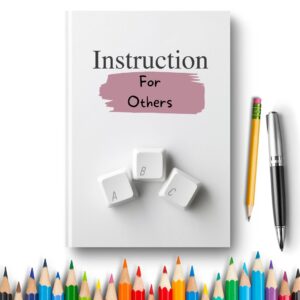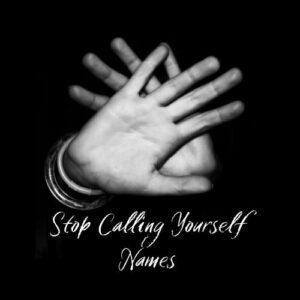Have you noticed how things seems to go along fine for a while and then something happens & suddenly it’s like you’ve been sucker-punched by life?
If you can relate, then you are an official member of the human race; you’ve probably noticed, it seems to be part of the deal in this existence. It’s not whether we get the wind knocked out of us, it’s what we do when it does. The degree to which we’ve learned and practiced the skill of managing our minds and emotions is what determines whether and how quickly we are able to get back on our feet.
One way the brain resists emotional pain is through our bodies. Which of the following have you noticed in your body when you feel negative emotion?
___ Clenching fists, jaws, eyes, buttocks
___ Tightening throat, facial muscles, gut
___ Folding arms, legs
___ Contraction in shoulders chest, stomach, etc.
___ Pervasive muscle tension or bracing
___ Holding our breath
___ Fixed gazing
___ Fighting back tears
___ Physical withdrawal through action or dissociation
Another way the brain resists emotional pain is through our thoughts. Which of the following have you noticed in yourself when you feel negative emotion?
___ Internal mental commands like, “no!” “stop!” or “enough!”
___ Preoccupation with seemingly peripheral or trivial things
___ Rumination on others’ thoughts, feelings and actions
___ Fixation on a random task
___ Repeatedly rehearsing anticipated events or exchanges
___ Spinning thoughts
___ Hyperfocusing on things we can’t control
___ Bullying ourselves with harsh, abusive internal chatter
___ Strategizing ways to solve the “problem” of our negative feeling.
Overriding the instinct to resist emotional pain requires managing our attention deliberately. This is especially challenging when we’ve learned to associate negative emotion with danger. Our brain has one assignment it takes very seriously – to keep us alive. Its job is to constantly be on alert for threats to our survival, convinced that danger is always lurking around the corner. This organizing system originally ensured the survival of our species, but in most of our day-to-day modern lives it works against us. The fact that our mother is depressed or our brother is a drug addict or our husband had an affair may feel devastating, but they don’t put us at risk of death. Left unchecked, our brain convinces us otherwise and activates a survival response that leaves us drained and disconnected. Our mind can find strategies to keep our feelings at bay; some more effective than others. To better understand how this works, I offer the concept of evaluating negative emotions as clean (pain) or muddy (suffering).
Clean Vs. Muddy Emotional Pain
We humans have a primal need for connection, belonging and attachment. We are a tribal species that historically have relied on the strength of social and familial ties for survival. So when we perceive these to be threatened or severed, the emotional pain can be intense. Even so, the adult human brain is designed to withstand this pain without compromising our own survival.
Clean pain is what we feel when we allow ourselves to feel the emotional pain that sometimes comes with being human. It is the willingness to accept that negative emotions are a natural and expected part of life. The ability to feel clean pain means we don’t rage against reality or believe we are entitled to a pain-free life.
Muddy pain happens when we push back against our negative emotions by resisting, reacting, or avoiding them. It creates a temporary solution that often causes problems downstream. One side effect is that is reinforces the fear of our emotions. Trying to get away from them paradoxically makes them more scary. The more afraid we are the more we believe that they have the power to consume us or destroy us. Another problem with this strategy is that it’s like holding a beach ball underwater; it creates increasing pressure and eventually wears us out. The ball eventually bursts through the surface and wreaks lots of havoc, which then convinces us we
have to push it back down. The more obvious ways this manifests include using food, drugs, alcohol or other substances or behaviors to not feel our feelings. Another, sneakier way our brain can muddy the emotional waters is through our own thoughts.
When I was 10 my father was diagnosed with Throat Cancer. I remember being in the back seat of the car when my mother told my brother and me about our dad’s diagnosis. She said things would need to change around the house and that he might die. I can still remember some of my thoughts as I sat frozen, staring out the window: “This is because I lost the Spelling Bee. I should have cleaned up my room like he told me. My brother shouldn’t be so annoying. This is my fault. I’ll be better from now on so Daddy won’t die.” It’s easy for me to remember these thoughts because variations on these kind of thoughts became my brain’s go-to whenever I was exposed to unexpected, emotionally overwhelming information. Even as I became an adult and able to process my emotional pain, I continued to react similarly to these kinds of situations. This maintained the illusion that emotional pain is intolerable and needs fixing; plus, if I broke it, I can fix it.
When we interpret our negative emotion as a life-threatening emergency our brain is going to desperate to fix the “problem.” Except that negative emotion can’t be fixed because it’s not a problem; it’s just a normal part of being human. This misunderstanding only adds suffering to our pain by burying us in the mud of swirling thoughts. Underneath, Clean Pain is still there, raw and unhealed; but we can’t get to it with all the mud blocking the way. The result is that we keep focusing on the all the things we can’t control and never get on the other side of our pain. Instead, we find ourselves in a kind of Groundhog Day of emotional distress that leaves us tyrannized by our own mind and at the mercy of people and circumstances we can’t control.
What I now know is that my body is capable of handling any emotion and negative emotion is not a problem or an emergency. In fact, not only will it not kill you, it can be a portal to learning how to tolerate your own distress and a catalyst for building courage, confidence and resilience.
How To Tell The Difference
How do you know if you’re feeling Clean or Muddy pain? Check your thinking! Make it a practice to write out your thoughts when you are in emotional distress and then notice: are you writing pages instead of sentences? Do they include the word “should”? If so, there’s a good chance you’re in a muddy place.
Examples of Clean Pain Thoughts
- This is really painful
- I am just so sad
- I feel angry right now
- My heart hurts
- This is a moment of suffering
- Everyone suffers.
- This is painful and I can do this
- Pain is part of life.
- I know this is temporary.
- I’m just going to let my heart break right now.
- I’m hurting and I want to be gentle with myself
- I’m in pain and it’s ok
- Pain doesn’t mean anything’s wrong
- This is hard and I can do hard things
- Pain doesn’t mean anything except I’m human
- There’s nothing for me to do here
- I can let myself cry
- Pain will come and it will go
- I can be patient with myself
- I feel _________ and I can let it be
- I can handle this feeling and it will pass
- Nothing’s going wrong; this is just human pain.
- I can take care of myself
- I’ll feel bad for a while and that’s ok
- I can love myself through this
- It’s ok to feel this way
- I can be compassionate with myself
- I can be kind to myself
- I’ll get through this
- There’s no rush, I can slow down
- I am learning to manage my mind and feel my feelings
- There isn’t an emotion I can’t handle
Examples of Muddy Pain Thoughts
- This shouldn’t be happening
- I can’t handle this
- Something’s wrong with me/him/her
- I need a drink, donut, drug, distraction, etc.
- Make it stop
- This is going to kill me
- I want to kill myself/him/her
- I/s/he can/can’t fix this
- I can make myself/him/her change
- I/s/he shouldn’t be feeling this
- I have to do something now!
- I’m not going to get through this
- This will never stop
- Someone/something needs to help me
- No one/nothing can help me
- This is not normal
- I hate myself/him/her
- I need to suck it up
- I won’t ever let myself feel this again
- I have work to do
- This means ___ about me/him/her/life/the world
- I have to tell to get this off my chest
- This is my/his/her/their fault
- I have to get out of this feeling
- I’m doomed
- I’ll never get over this
- This isn’t the way h/she/life should be
- This is urgent
- I’ll never get out of this
- No one understands
- I can’t stand this
- I don’t have time for this shit
- This isn’t the way my life is supposed to be



